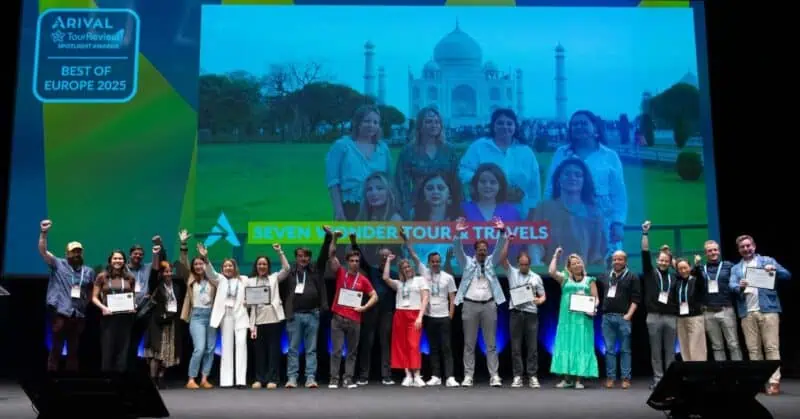Raj Gyawali, founder of Socialtours based in Kathmandu, Nepal, didn’t set out to launch a sustainable tourism business. But after he helped his British business partner facilitate a student tour of Nepal and set aside profits from that experience to help build a cataract removal clinic for rural Himalayan communities, Gyawali realized how responsible tourism can be a prime tool for positive impact. The seed for launching Socialtours was planted.
Responsible tourism is baked into every aspect of Socialtours, which runs tours ranging from three-hour cooking classes to 17-day treks into the Everest region. Responsible tourism “is the underlying current in what we do on the ethical side,” says Gyawali, who cites six underlying principles that his company operates upon, including: respecting every individual, honesty and integrity, continued excellence in delivery, social responsibility, environmental conservation and the declaration that money is not the only goal in business.
“The whole thing started off on this system of values, and I have almost everything in the company flowing through these values,” says Gyawali. “We’ve kept the business quite conscious.”
We caught up with Raj to learn his holistic advice for running a responsible tour business. Read on, and incorporate these ideas into your own operation.
How you operate your office matters. Gyawali isn’t just passionate about building sustainability into his tours and experiences. He’s dedicated to ensuring his administration offices follow environmentally friendly practices, too, such as minimizing plastic use, offering recycling facilities and serving fairly traded, consciously sourced coffee. When guests enter the office, the green practices help tell the story of company values.
Educate guides—and guests. Socialtours trains their specialist trekking guides on sustainable practices and leadership for multi-day trips. Because almost every tour group begins in Kathmandu, Gyawali’s team is able to give a two-hour briefing to their guests on responsible environmental practices while trekking. “We get really deep into it,” says Gyawali, who adds that Socialtours distributes guiding notes on sustainability to all guests prior to the trip, too.
Donate a percentage of profits. Working off Socialtours’ guiding principle that money is not the only goal, Gyawali donates 10% of profits to local charities and 10% into staff welfare, which includes paying admin, guides and porters a fair wage. Socialtours also organized the largest charity bicycle ride in Nepal that raised $65,000. “For me, charity is just one side of giving back,” says Gyawali.
Responsible business is a discipline. Running a responsible business is a continuous practice, like yoga. Just because you have some conscious initiatives in place doesn’t mean you’re done—you must keep evaluating and shifting your practices to make them more sustainable and more environmentally friendly. This also means being realistic about sustainability practices that simply aren’t working for you business needs. “Many initiatives fall apart. The world is not an ideal place, and you have got to let some things go,” says Gyawali.
For example, Socialtours guests often travel from one city to another on tours—and usually fly because driving would take 7 to 8 hours due to variable road conditions. Flight travel isn’t very sustainable, but it makes for a vastly improved traveler experience. “Sustainability is about constant learning,” says Gyawali. “But you have made the effort and conscious choice to be a responsible operator, and that’s the part that’s really important.”

















